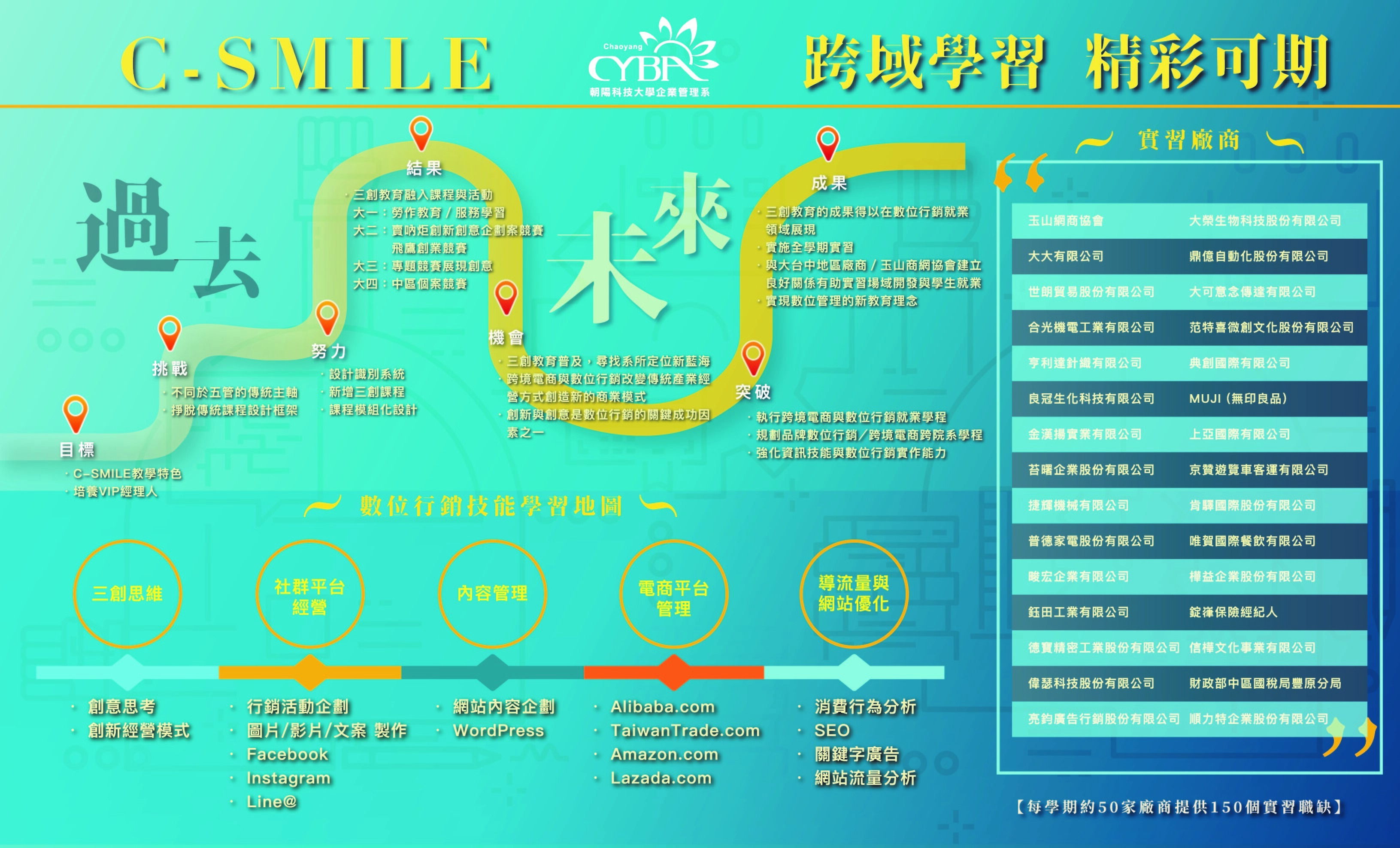About

The Department of Business Administration centers on creativity, and emphasizes attitude, learning, skills, practical management problem-solving, and entrepreneurship in its management education, aiming to cultivate managers with vision, innovation, and professionalism (VIP).
However, in the early stage, traditional curriculum of the Department of Business Administration, focusing on production, marketing, human resources, R&D, and finance, does not align with the training characteristics of innovation, creativity, and entrepreneurship. There was a lack of consensus among faculty, and students were also unfamiliar with the CSMILE teaching philosophy.
Consequently, faculty members began discussing new teaching strategies, gradually adding courses related to innovation, creativity, and entrepreneurship, or integrating these elements into existing courses. They then designed a curriculum map, planning three course modules: "Innovative Business Models," "Enterprise Process Planning," and "Marketing and Business Planning," and set about designing a new identification system.
With the integration of innovation, creativity, and entrepreneurship education into the curriculum, students' creativity began to manifest in project presentations. Teachers started training students to participate in external innovation and entrepreneurship competitions, while regularly organizing the Mauna Kea Innovation/Entrepreneurship Competition, which annually attracts hundreds of teams from across the country. This gradually established a distinctive image of the Department of Business Administration at Chaoyang University as valuing education in innovation, creativity, and entrepreneurship. Meanwhile, through freshman labor education and service-learning courses, students were trained to develop good work attitudes.
As innovation and entrepreneurship education became increasingly popular, other universities began offering related courses, and the school also established an Innovation and Entrepreneurship Education Center, offering courses to the entire university. The Department of Business Administration decided to seek a new niche for its positioning. With the rise of cross-border e-commerce platforms and the maturity of digital marketing tools changing traditional industry operations and creating new business models, the department began planning to cultivate talents in cross-border e-commerce and digital marketing, building on the foundation of its existing innovation and entrepreneurship education.
Initially, the technical capabilities of the faculty lagged behind the industry. With financial support from the Ministry of Labor’s Employment Program, the department brought in renowned industry experts in digital content writing, production, social media platform management, cross-border e-commerce platform operation, web optimization, and digital advertising. Additionally, the department collaborated with the Department of Applied English to create the "Cross-College Program in Cross-Border E-Commerce" and with the Department of Visual Communication and Information Management to create the "Cross-College Program in Brand Digital Marketing," comprehensively enhancing students' information skills and practical abilities.
Finally, through the collective efforts of the faculty, the results of previous innovation and entrepreneurship education were reflected in the digital marketing employment field. Due to the excellent performance of the students, the department established good relationships with businesses in the Greater Taichung area and the Jade Mountain Network Association, creating numerous internship opportunities and promoting student employment. The department is advancing towards the new educational vision of digital management as part of the College of Management’s strategic plan to "embrace artificial intelligence" and "embrace the platinum generation."
